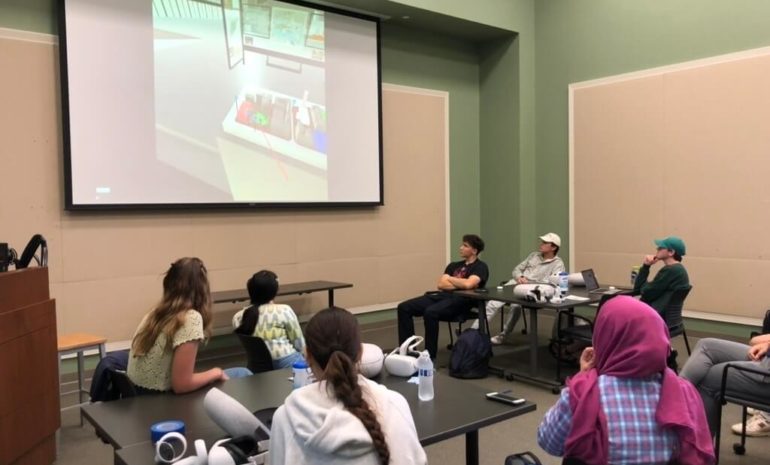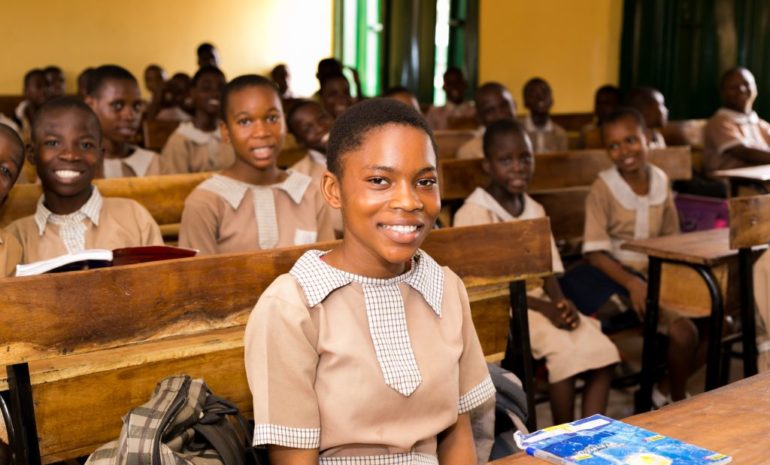Education is the cornerstone of development, yet many African countries face significant challenges in providing quality education. From overcrowded classrooms to a lack of resources, these barriers hinder the potential of millions of students. Enter Extended Reality (XR)—a groundbreaking technology that includes Virtual Reality (VR), Augmented Reality (AR), and Mixed Reality (MR). XR is poised to revolutionize education in Africa, offering innovative solutions to long-standing problems. Here’s how:
What is XR, and How Does It Work in Education?
XR refers to immersive technologies that blend the physical and digital worlds. In education, XR can create interactive, engaging, and realistic learning experiences. For example, students can explore ancient Egyptian pyramids in VR, overlay AR models of the human body during biology lessons, or conduct virtual chemistry experiments in MR.
Bridging the Urban-Rural Education Gap
One of the biggest challenges in African education is the disparity between urban and rural schools. While urban schools may have access to resources, rural schools often lack even basic infrastructure. XR can bridge this gap by providing virtual labs, 3D models, and interactive lessons that require only a smartphone or VR headset. This ensures that students in remote areas receive the same quality education as their urban counterparts.
Case Studies: XR in Action Across Africa
While XR adoption in Africa is still in its early stages, there are promising examples of its impact:
- South Africa: Some schools are using VR to teach history, allowing students to virtually visit historical sites like Robben Island.
- Nigeria: AR apps are being developed to help students visualize complex science concepts, such as the structure of atoms.
- Kenya: NGOs are piloting VR programs to train teachers in rural areas, improving the quality of instruction.
These examples demonstrate the potential of XR to transform education across the continent.
Benefits of XR for African Students and Teachers
- Access to Quality Resources: XR provides virtual labs, libraries, and field trips, overcoming the lack of physical resources.
- Cultural Preservation: XR can create immersive experiences that teach students about African history and heritage, fostering pride and identity.
- Teacher Training: XR can be used to train teachers in innovative methods, improving the overall quality of education.
- Cost-Effective Learning: While initial costs may be high, XR reduces long-term expenses on physical materials and equipment.
Challenges to Adopting XR in Africa
Despite its potential, XR adoption in Africa faces several challenges:
- High Costs: VR headsets and AR devices can be expensive, though prices are gradually decreasing.
- Limited Internet Access: Many areas lack reliable internet, which is essential for some XR applications.
- Technical Expertise: Teachers and students may need training to use XR effectively.
To overcome these barriers, partnerships between governments, tech companies, and NGOs are essential. Affordable devices, offline XR solutions, and teacher training programs can make XR accessible to more schools.


The Future of XR in African Education
The future of XR in Africa is bright. As technology becomes more affordable and accessible, XR has the potential to:
- Democratize education by reaching underserved communities.
- Prepare students for the digital economy by teaching technical skills.
- Foster innovation and creativity, driving Africa’s development.
Conclusion: Embrace the XR Revolution
XR is not just a technological trend—it’s a powerful tool that can transform education in Africa. By addressing challenges like resource gaps and outdated teaching methods, XR can unlock the potential of millions of students and pave the way for a brighter future.
At [Your Company Name], we’re passionate about bringing XR to African schools. Our [Product Name] is designed to make immersive learning accessible, affordable, and effective. Ready to join the XR revolution? Explore our product today or contact us to learn more!
FAQ
Q: What is XR in education?
A: XR (Extended Reality) includes VR, AR, and MR technologies that create immersive and interactive learning experiences.
Q: How can XR help rural schools in Africa?
A: XR provides virtual labs, 3D models, and interactive lessons, ensuring rural students have access to the same resources as urban schools.
Q: Is XR affordable for African schools?
A: While initial costs can be high, partnerships and scalable solutions are making XR more accessible.


